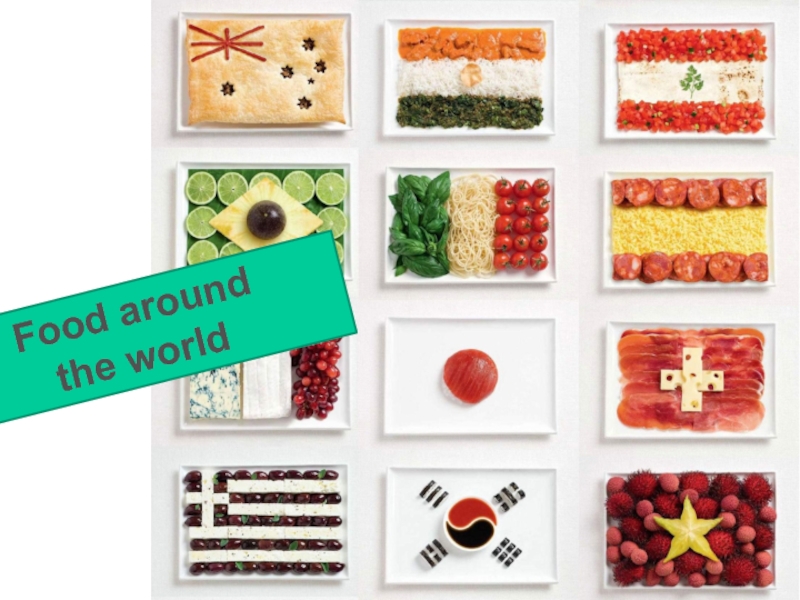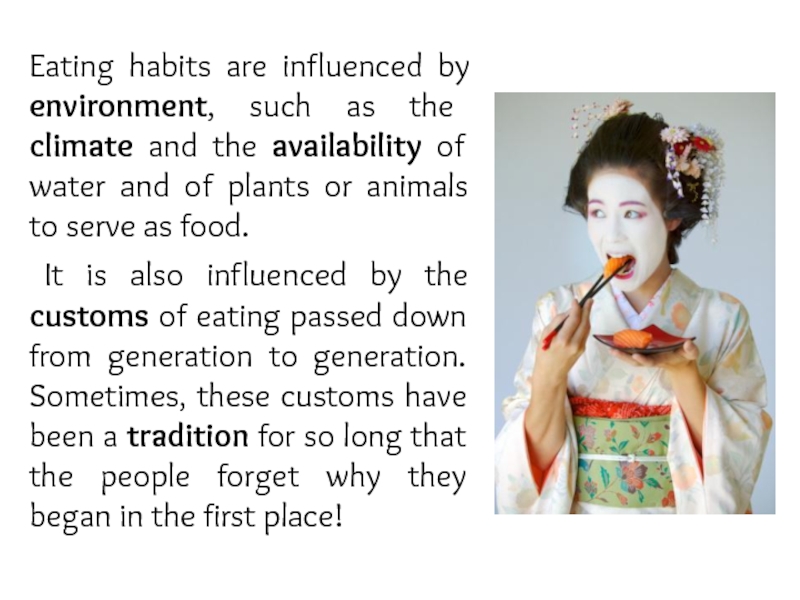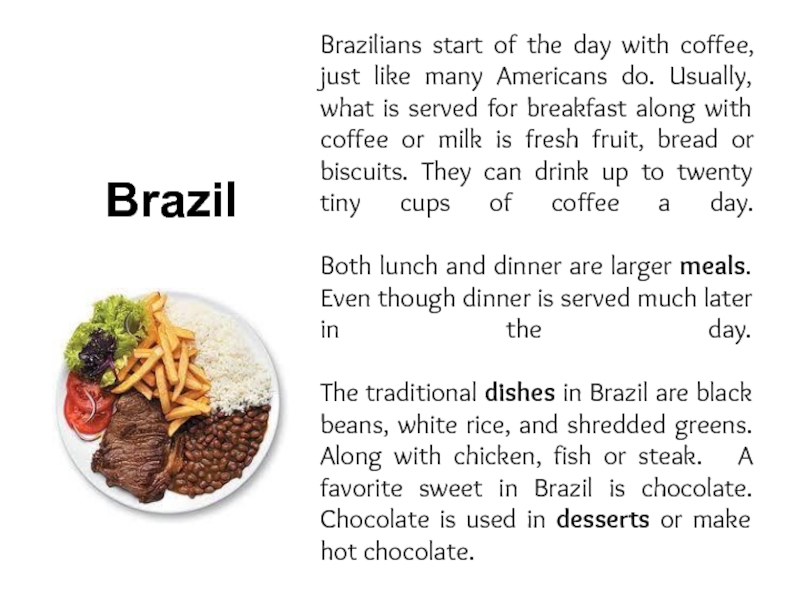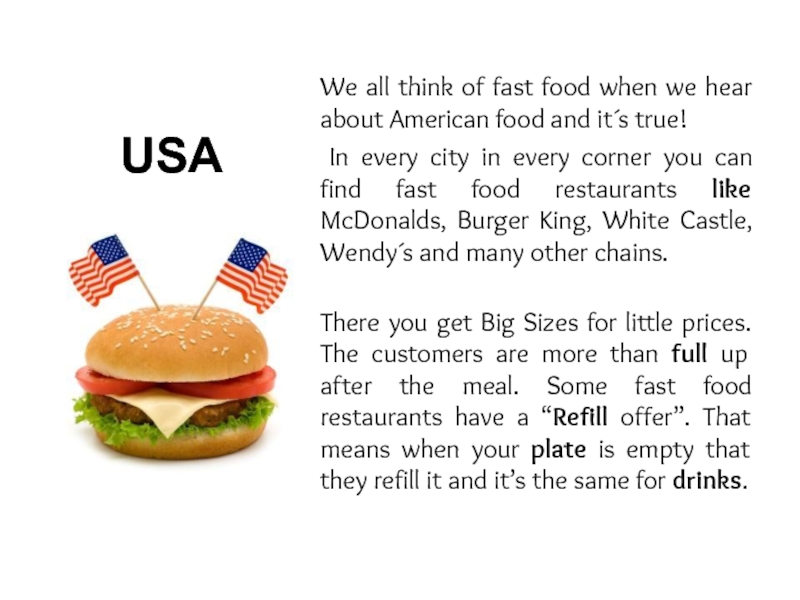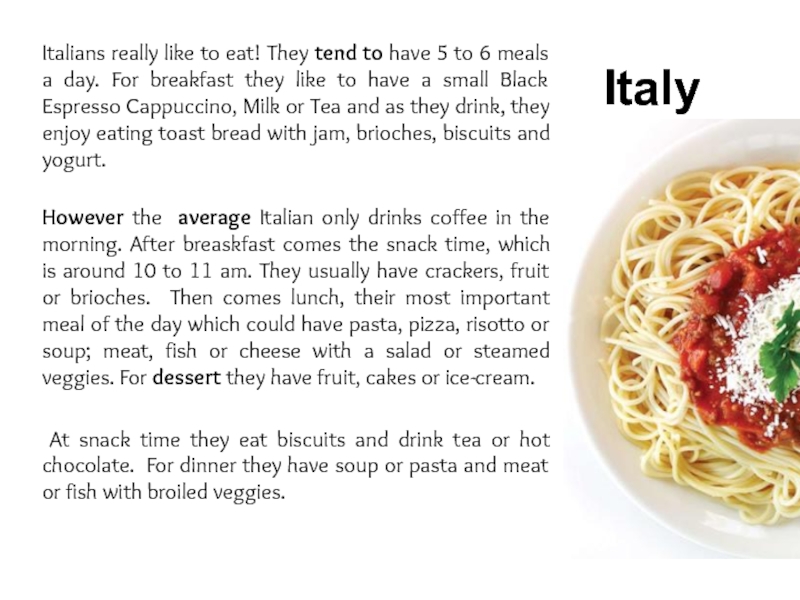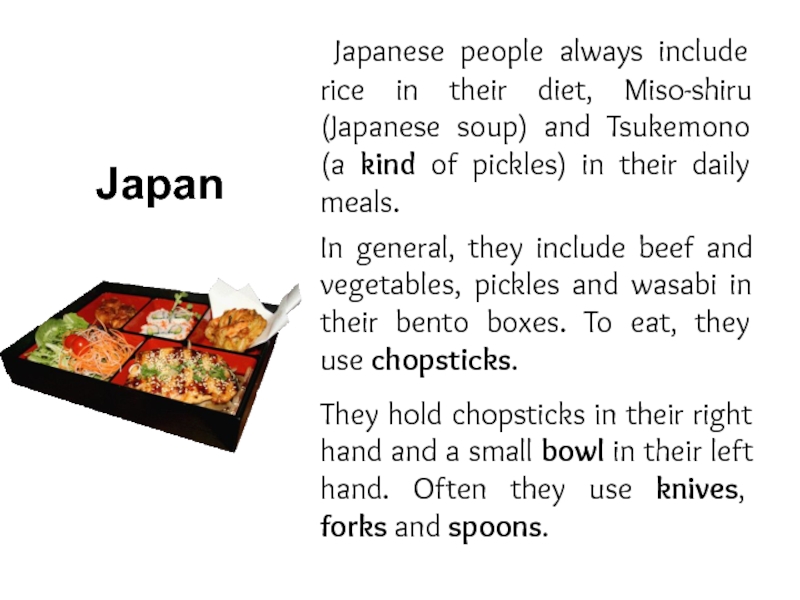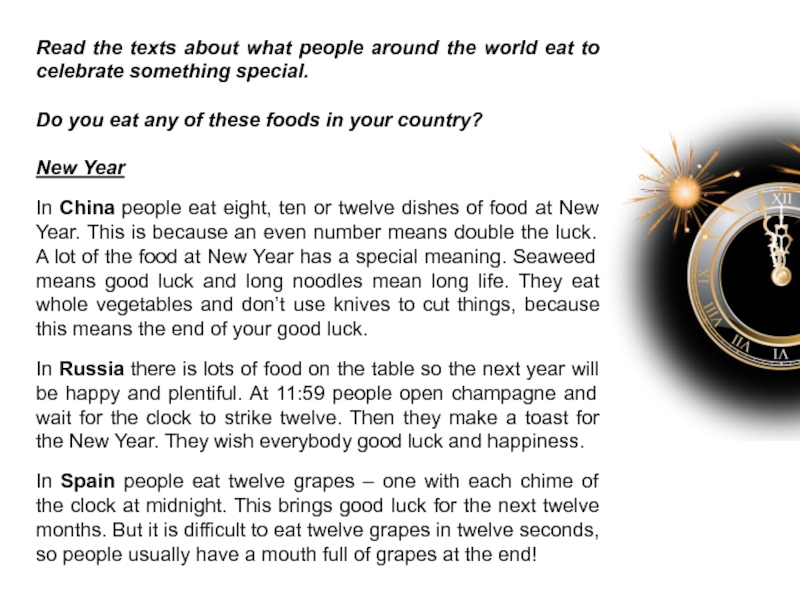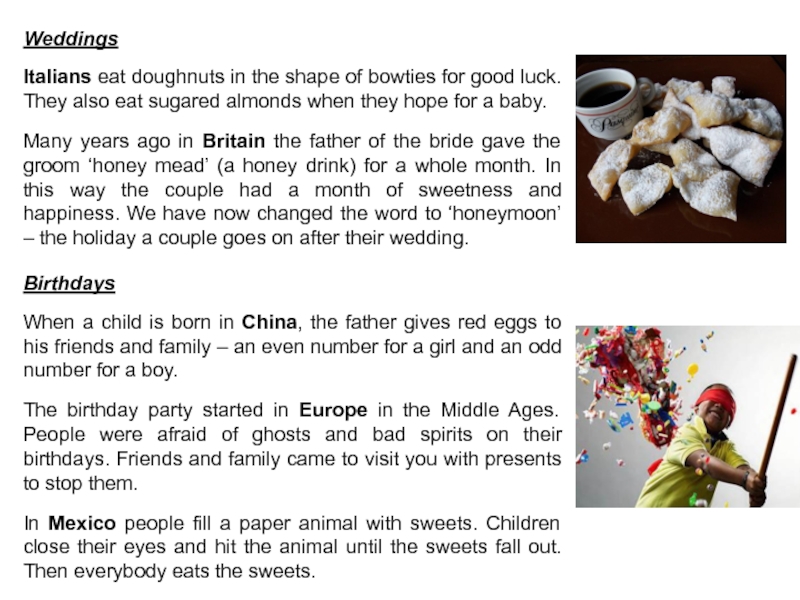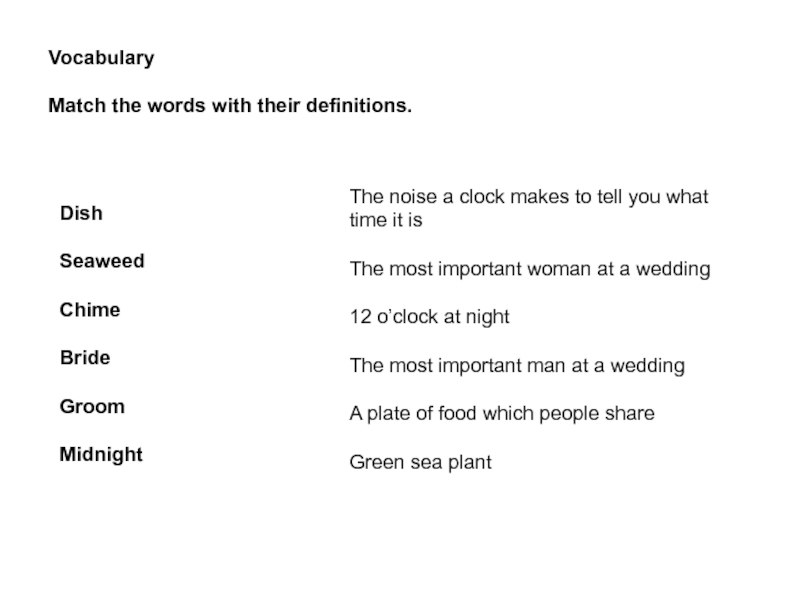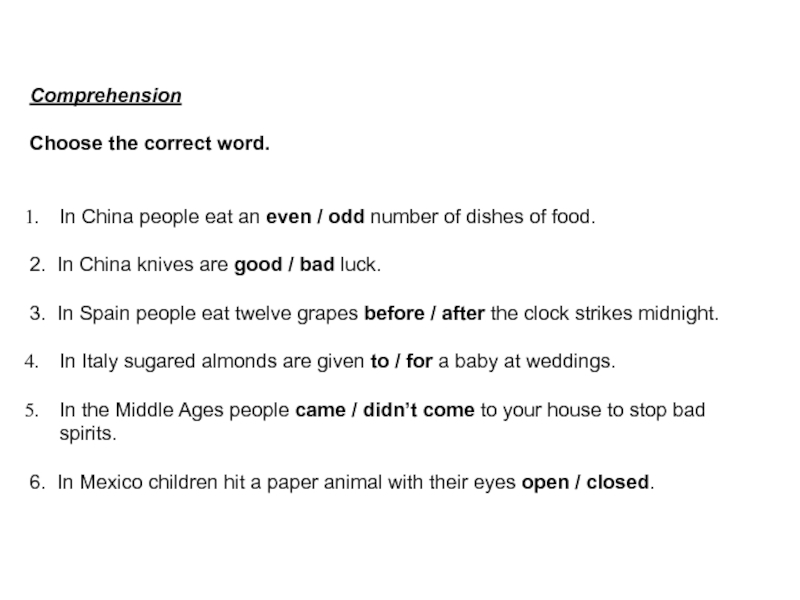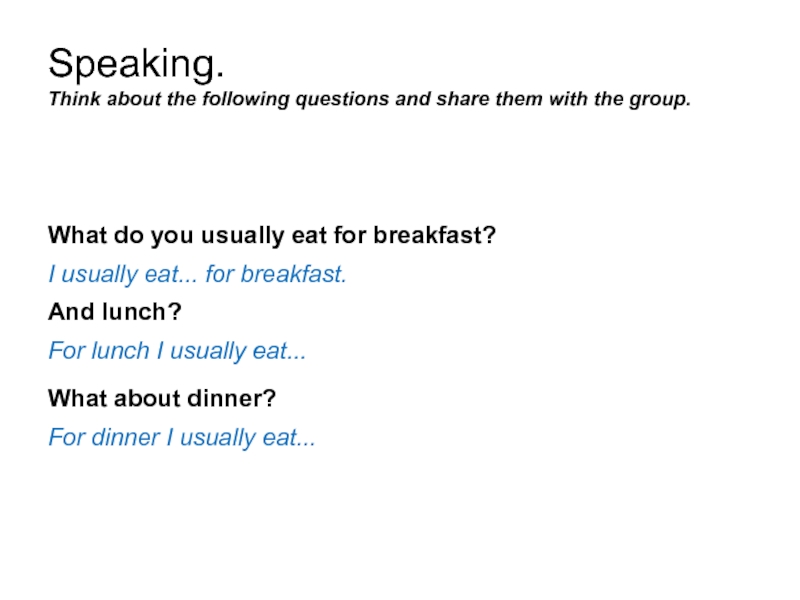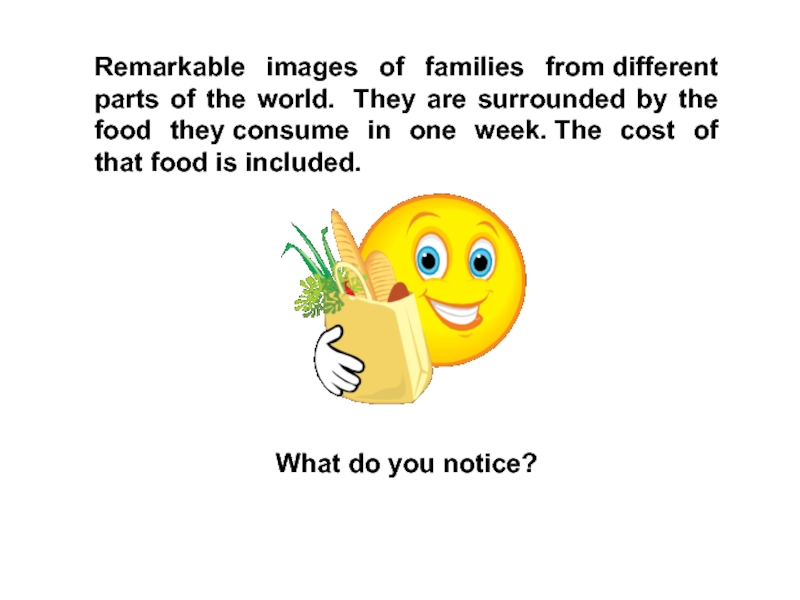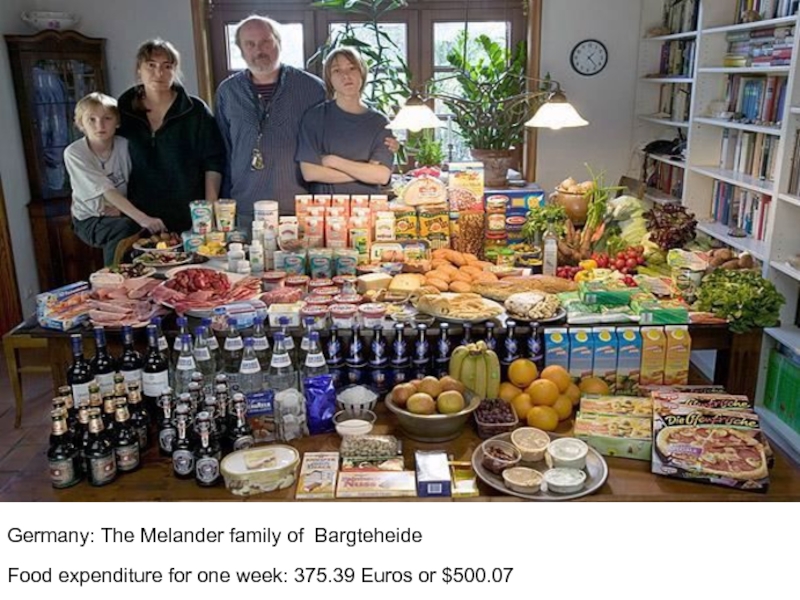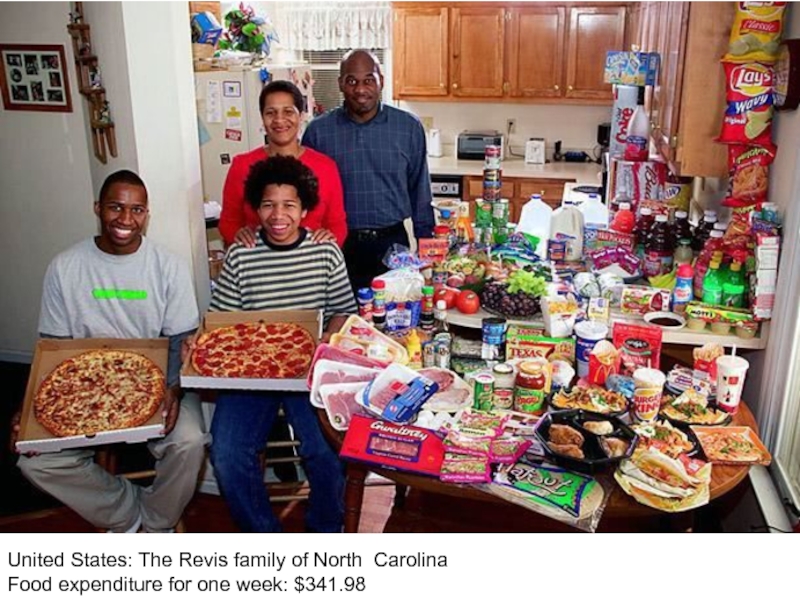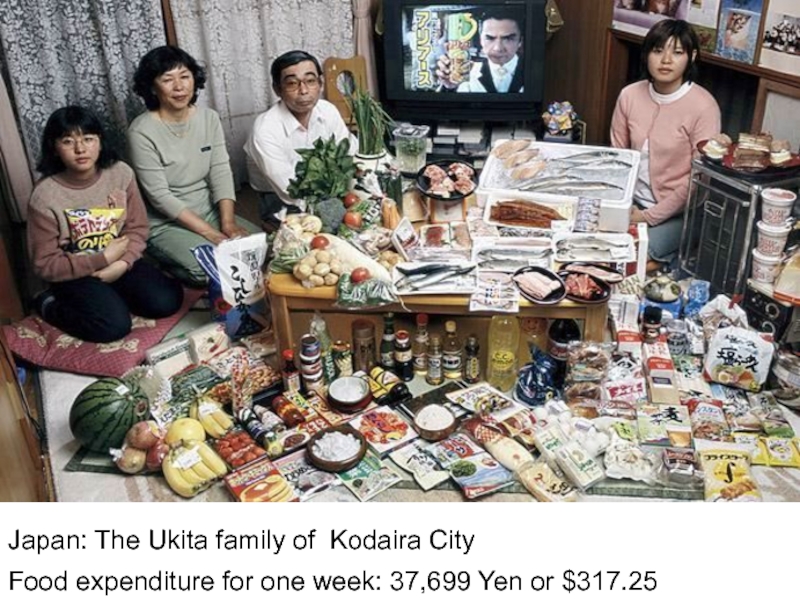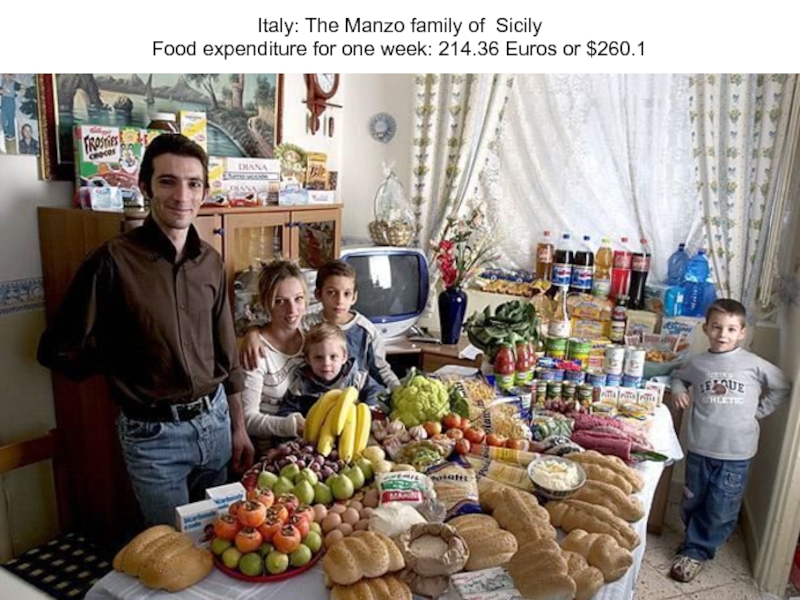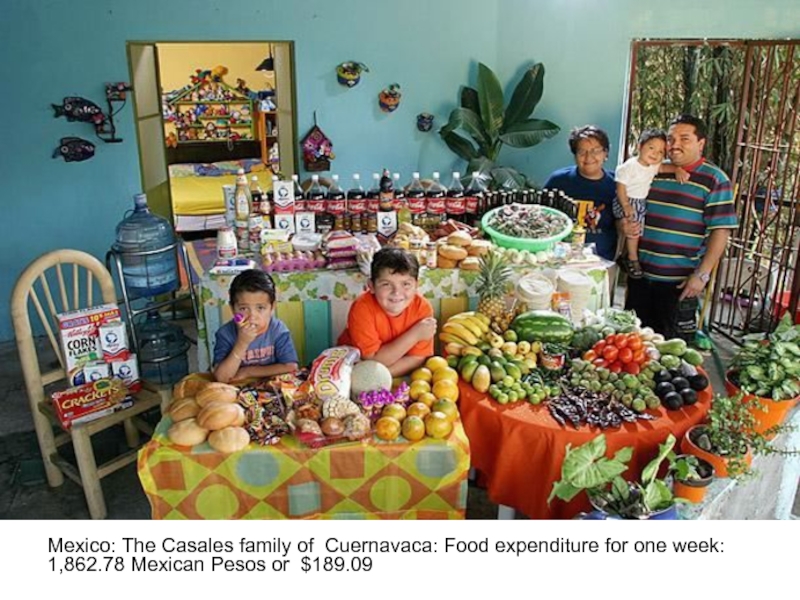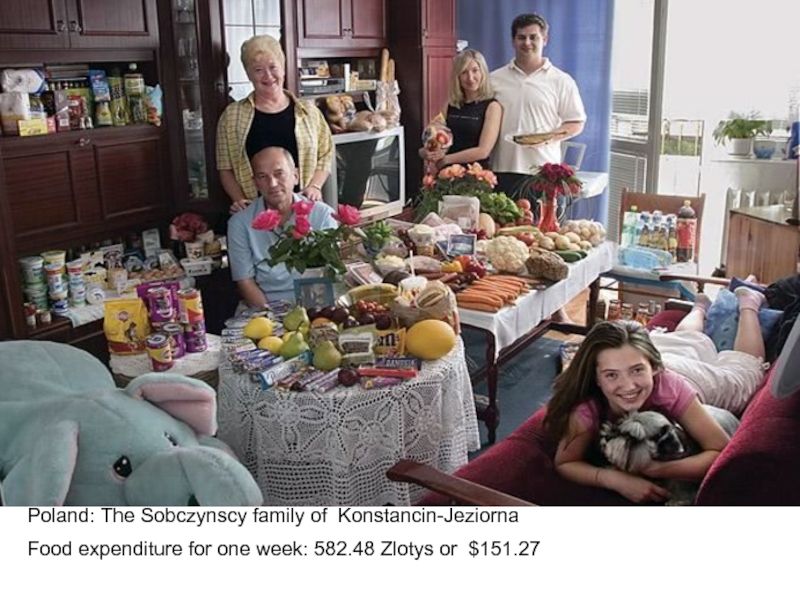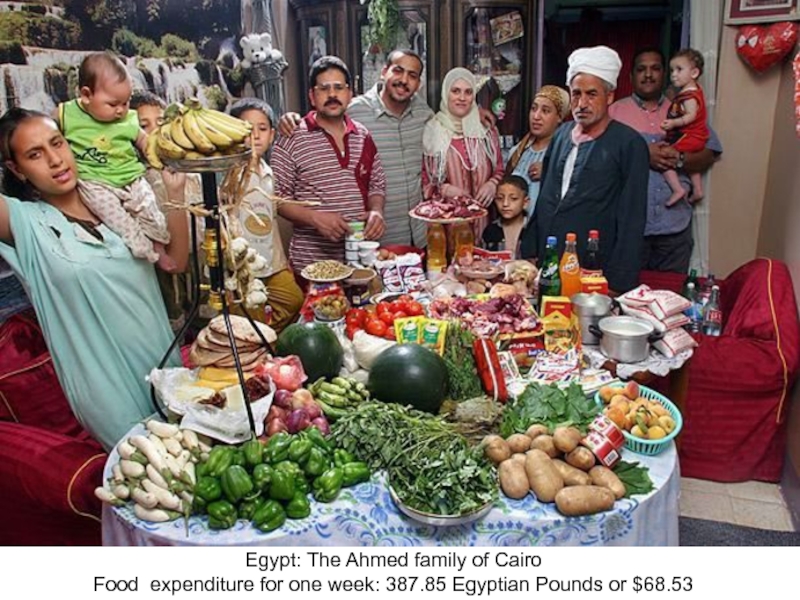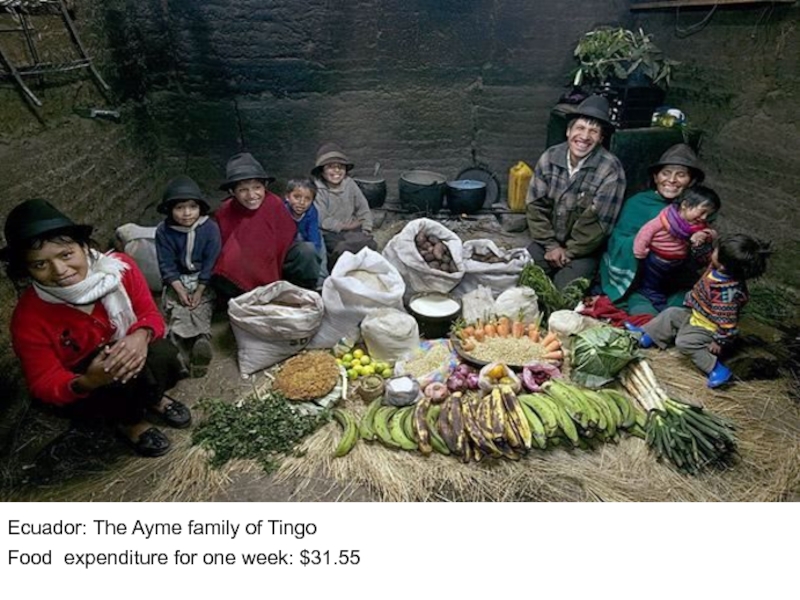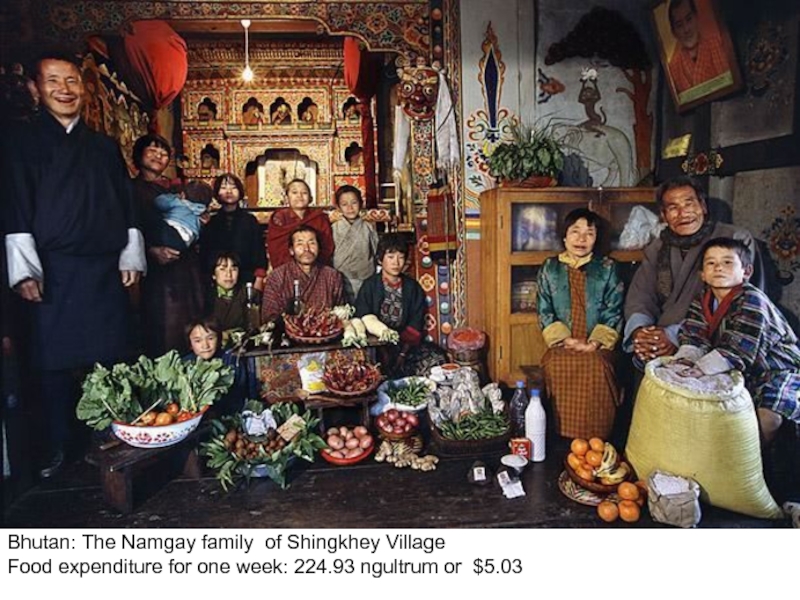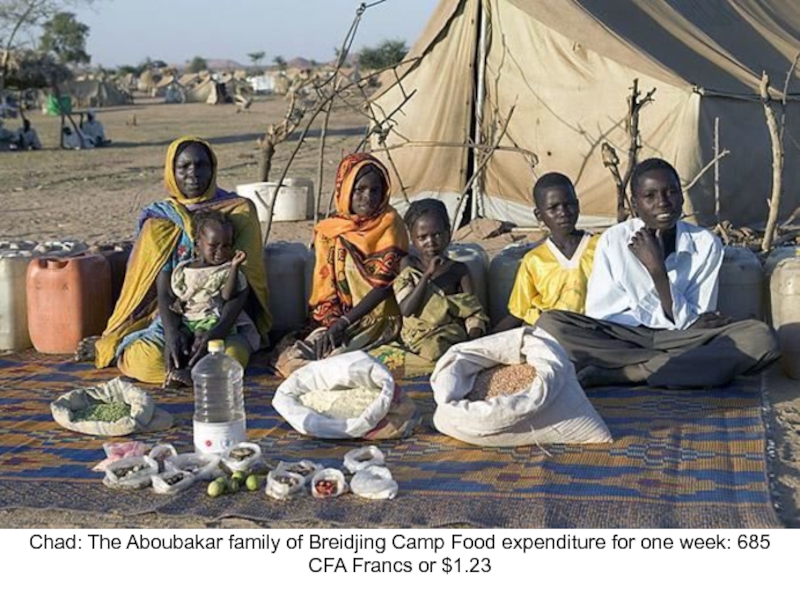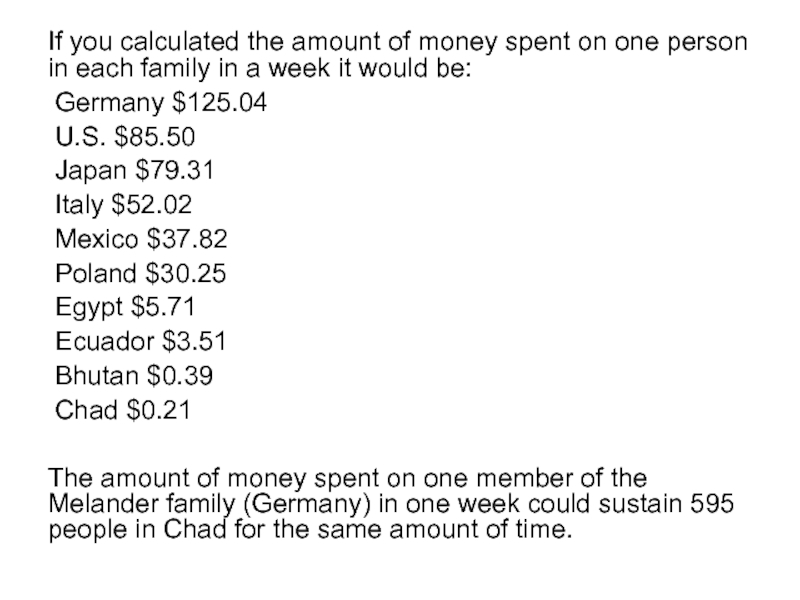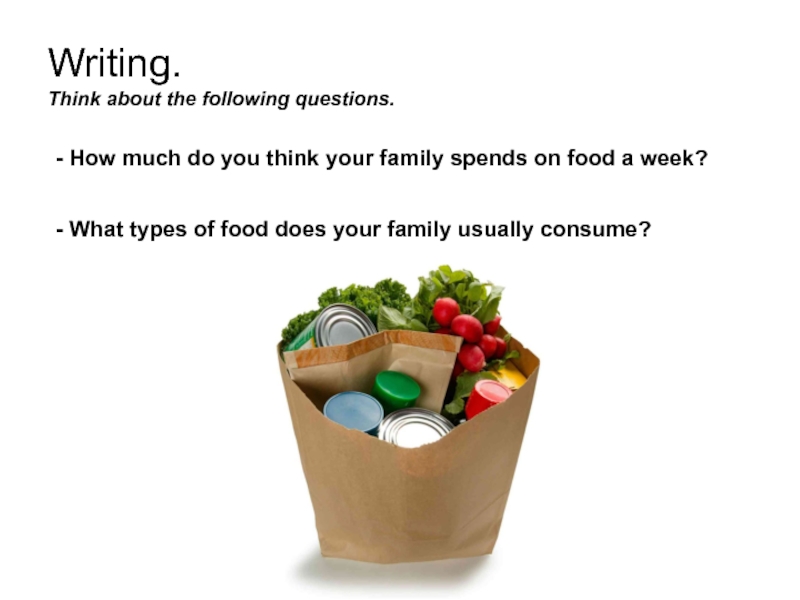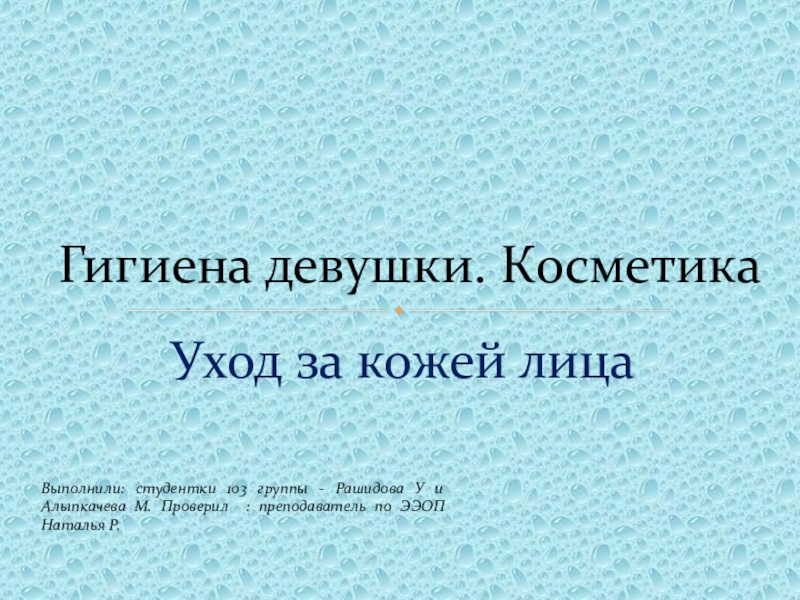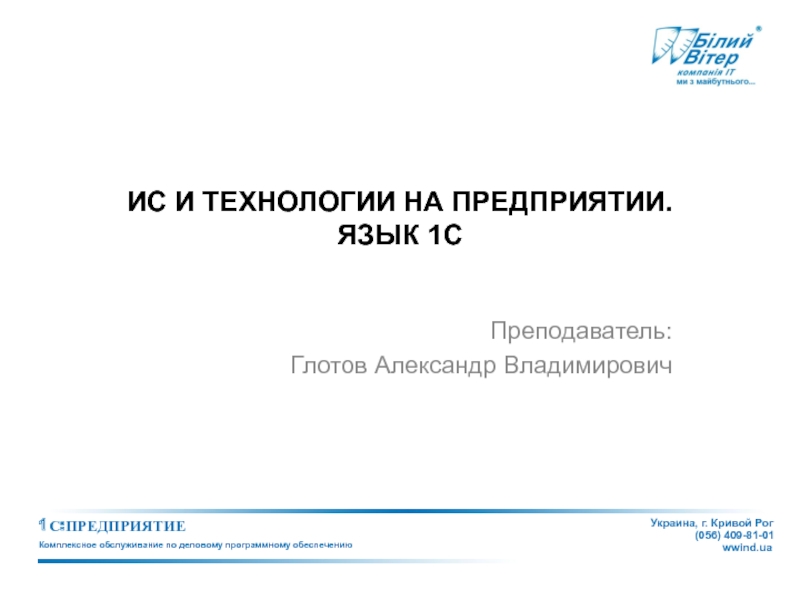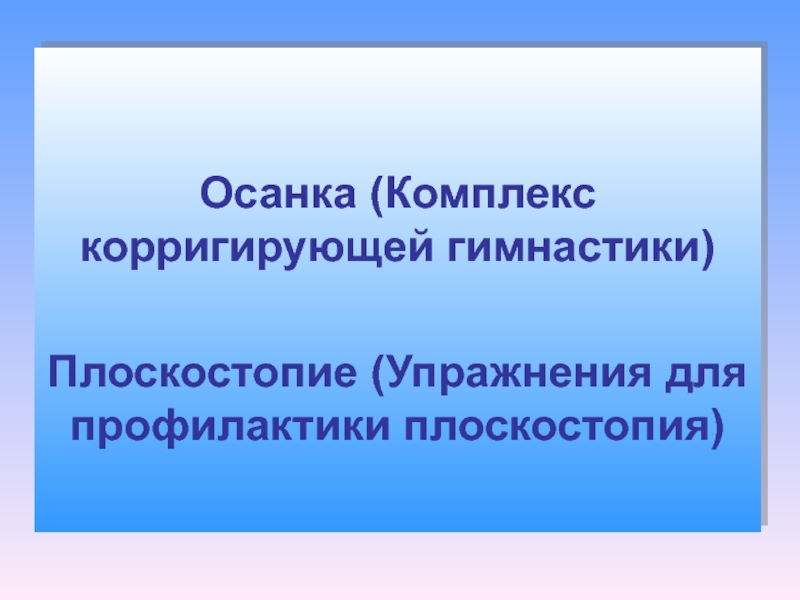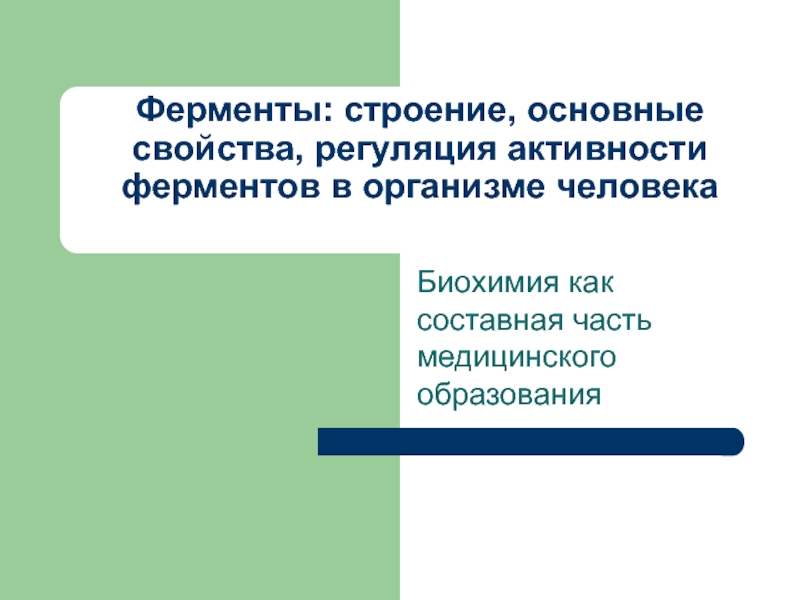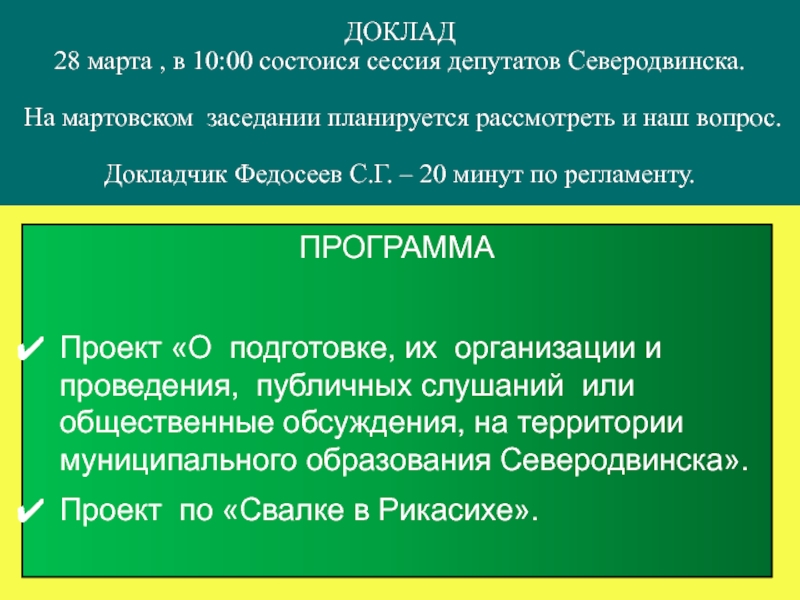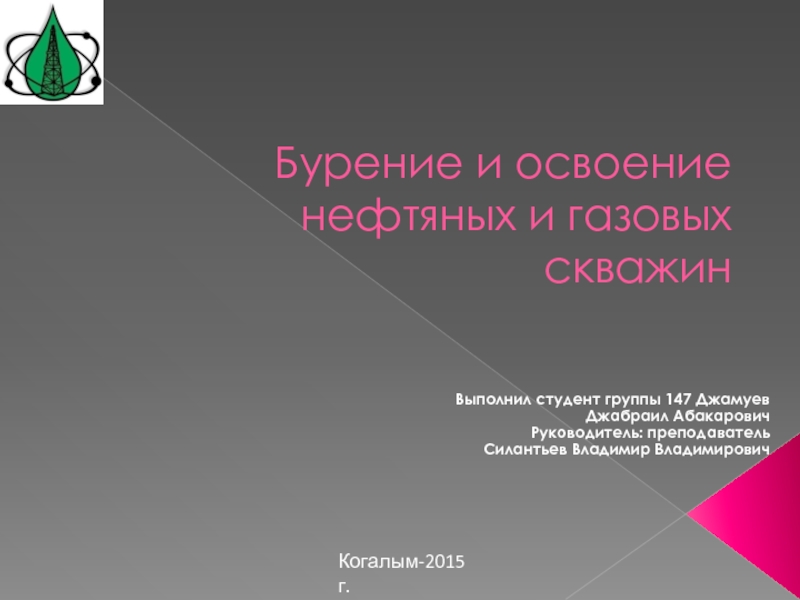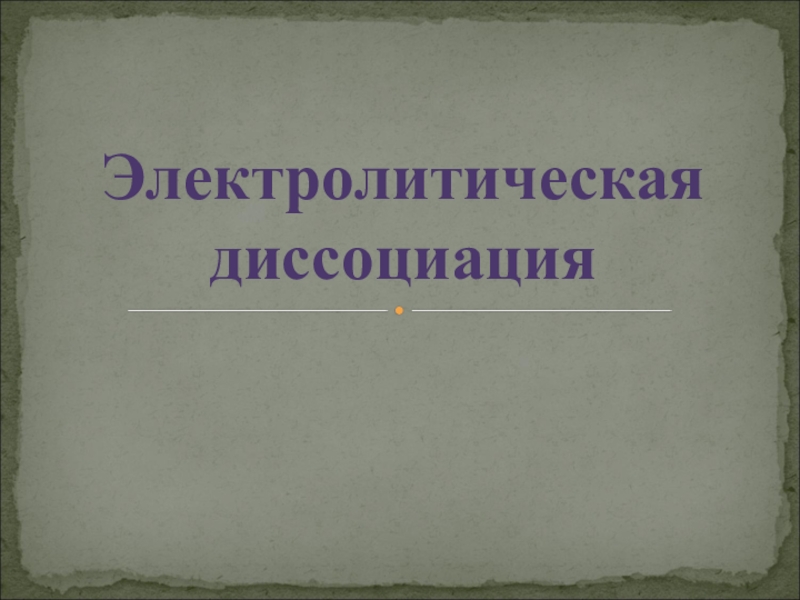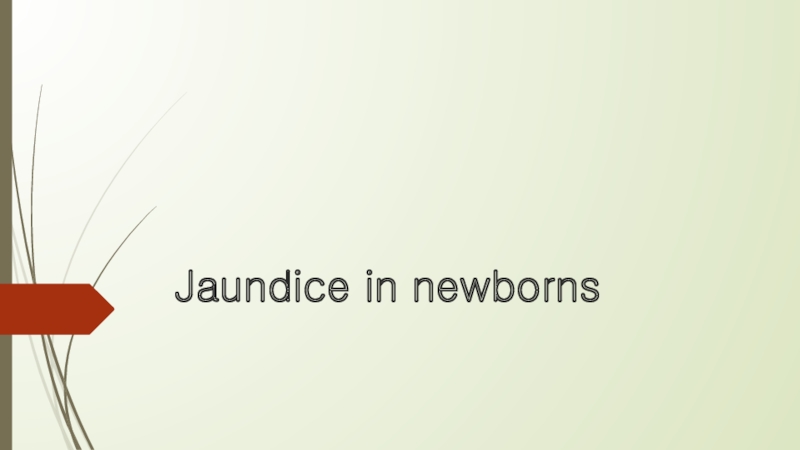Слайд 2Eating habits are influenced by environment, such as the climate
and the availability of water and of plants or animals
to serve as food.
It is also influenced by the customs of eating passed down from generation to generation. Sometimes, these customs have been a tradition for so long that the people forget why they began in the first place!
Слайд 3Brazil
Brazilians start of the day with coffee, just like
many Americans do. Usually, what is served for breakfast along
with coffee or milk is fresh fruit, bread or biscuits. They can drink up to twenty tiny cups of coffee a day.
Both lunch and dinner are larger meals. Even though dinner is served much later in the day.
The traditional dishes in Brazil are black beans, white rice, and shredded greens. Along with chicken, fish or steak. A favorite sweet in Brazil is chocolate. Chocolate is used in desserts or make hot chocolate.
Слайд 4USA
We all think of fast food when we hear
about American food and it´s true!
In every city in
every corner you can find fast food restaurants like McDonalds, Burger King, White Castle, Wendy´s and many other chains.
There you get Big Sizes for little prices. The customers are more than full up after the meal. Some fast food restaurants have a “Refill offer”. That means when your plate is empty that they refill it and it’s the same for drinks.
Слайд 5Italy
Italians really like to eat! They tend to have
5 to 6 meals a day. For breakfast they like
to have a small Black Espresso Cappuccino, Milk or Tea and as they drink, they enjoy eating toast bread with jam, brioches, biscuits and yogurt.
However the average Italian only drinks coffee in the morning. After breaskfast comes the snack time, which is around 10 to 11 am. They usually have crackers, fruit or brioches. Then comes lunch, their most important meal of the day which could have pasta, pizza, risotto or soup; meat, fish or cheese with a salad or steamed veggies. For dessert they have fruit, cakes or ice-cream.
At snack time they eat biscuits and drink tea or hot chocolate. For dinner they have soup or pasta and meat or fish with broiled veggies.
Слайд 6Japan
Japanese people always include rice in their diet,
Miso-shiru (Japanese soup) and Tsukemono (a kind of pickles) in
their daily meals.
In general, they include beef and vegetables, pickles and wasabi in their bento boxes. To eat, they use chopsticks.
They hold chopsticks in their right hand and a small bowl in their left hand. Often they use knives, forks and spoons.
Слайд 7Read the texts about what people around the world eat
to celebrate something special.
Do you eat any of these
foods in your country?
New Year
In China people eat eight, ten or twelve dishes of food at New Year. This is because an even number means double the luck. A lot of the food at New Year has a special meaning. Seaweed means good luck and long noodles mean long life. They eat whole vegetables and don’t use knives to cut things, because this means the end of your good luck.
In Russia there is lots of food on the table so the next year will be happy and plentiful. At 11:59 people open champagne and wait for the clock to strike twelve. Then they make a toast for the New Year. They wish everybody good luck and happiness.
In Spain people eat twelve grapes – one with each chime of the clock at midnight. This brings good luck for the next twelve months. But it is difficult to eat twelve grapes in twelve seconds, so people usually have a mouth full of grapes at the end!
Слайд 8Weddings
Italians eat doughnuts in the shape of bowties for good
luck. They also eat sugared almonds when they hope for
a baby.
Many years ago in Britain the father of the bride gave the groom ‘honey mead’ (a honey drink) for a whole month. In this way the couple had a month of sweetness and happiness. We have now changed the word to ‘honeymoon’ – the holiday a couple goes on after their wedding.
Birthdays
When a child is born in China, the father gives red eggs to his friends and family – an even number for a girl and an odd number for a boy.
The birthday party started in Europe in the Middle Ages. People were afraid of ghosts and bad spirits on their birthdays. Friends and family came to visit you with presents to stop them.
In Mexico people fill a paper animal with sweets. Children close their eyes and hit the animal until the sweets fall out. Then everybody eats the sweets.
Слайд 9Vocabulary
Match the words with their definitions.
Dish
Seaweed
Chime
Bride
Groom
Midnight
The noise a clock makes
to tell you what time it is
The most important woman
at a wedding
12 o’clock at night
The most important man at a wedding
A plate of food which people share
Green sea plant
Слайд 10Comprehension
Choose the correct word.
In China people eat an even /
odd number of dishes of food.
2. In China knives are
good / bad luck.
3. In Spain people eat twelve grapes before / after the clock strikes midnight.
In Italy sugared almonds are given to / for a baby at weddings.
In the Middle Ages people came / didn’t come to your house to stop bad spirits.
6. In Mexico children hit a paper animal with their eyes open / closed.
Слайд 11Speaking.
Think about the following questions and share them with the
group.
What do you usually eat for breakfast?
I usually eat... for
breakfast.
And lunch?
For lunch I usually eat...
What about dinner?
For dinner I usually eat...
Слайд 12Remarkable images of families from different parts of the world. They
are surrounded by the food they consume in one week. The cost
of that food is included.
What do you notice?
Слайд 13Germany: The Melander family of Bargteheide
Food expenditure for one week:
375.39 Euros or $500.07
Слайд 14United States: The Revis family of North Carolina
Food expenditure
for one week: $341.98
Слайд 15Japan: The Ukita family of Kodaira City
Food expenditure for one
week: 37,699 Yen or $317.25
Слайд 16Italy: The Manzo family of Sicily
Food expenditure for one week:
214.36 Euros or $260.1
Слайд 17Mexico: The Casales family of Cuernavaca: Food expenditure for one
week: 1,862.78 Mexican Pesos or $189.09
Слайд 18Poland: The Sobczynscy family of Konstancin-Jeziorna
Food expenditure for one week:
582.48 Zlotys or $151.27
Слайд 19
Egypt: The Ahmed family of Cairo
Food expenditure for one week:
387.85 Egyptian Pounds or $68.53
Слайд 20Ecuador: The Ayme family of Tingo
Food expenditure for one week:
$31.55
Слайд 21Bhutan: The Namgay family of Shingkhey Village
Food expenditure for one
week: 224.93 ngultrum or $5.03
Слайд 22Chad: The Aboubakar family of Breidjing Camp Food expenditure for
one week: 685 CFA Francs or $1.23
Слайд 23If you calculated the amount of money spent on one
person in each family in a week it would be:
Germany $125.04
U.S. $85.50
Japan $79.31
Italy $52.02
Mexico $37.82
Poland $30.25
Egypt $5.71
Ecuador $3.51
Bhutan $0.39
Chad $0.21
The amount of money spent on one member of the Melander family (Germany) in one week could sustain 595 people in Chad for the same amount of time.
Слайд 24Writing.
Think about the following questions.
- How much do you
think your family spends on food a week?
- What
types of food does your family usually consume?
